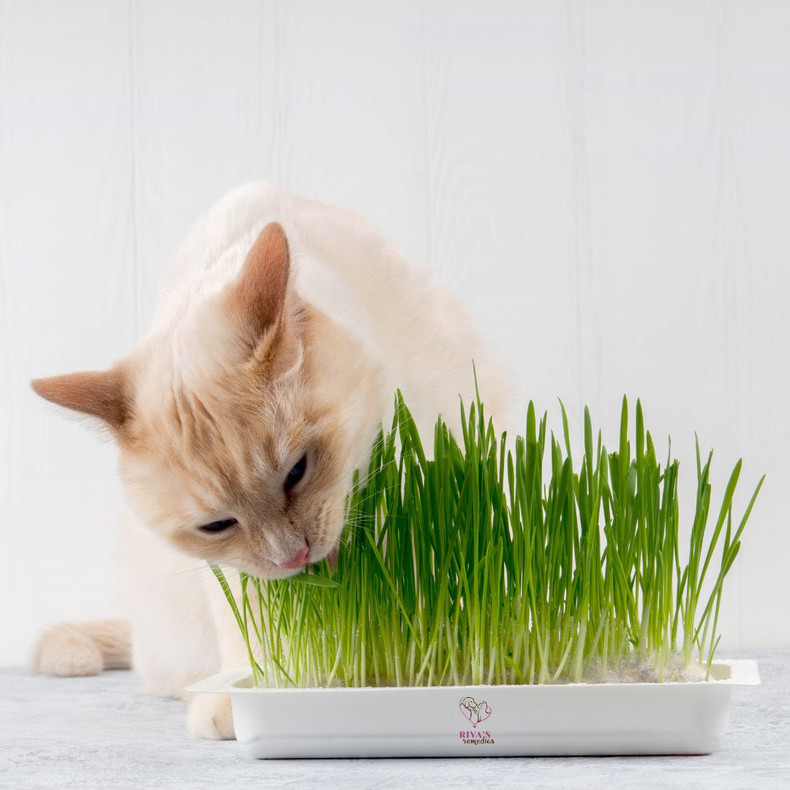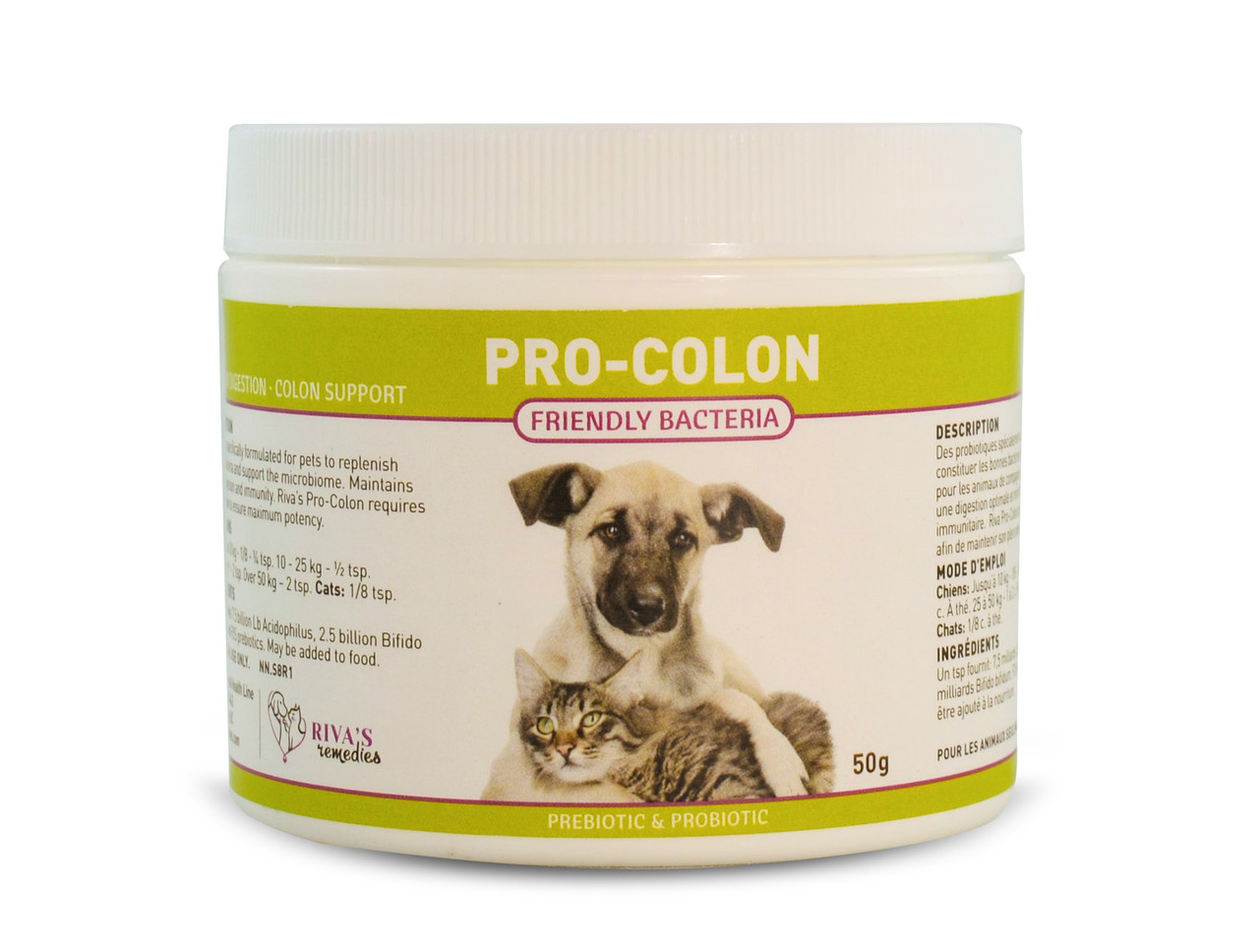The Microbiome of the Domestic Cat
~ Restoring Digestive Balance ~
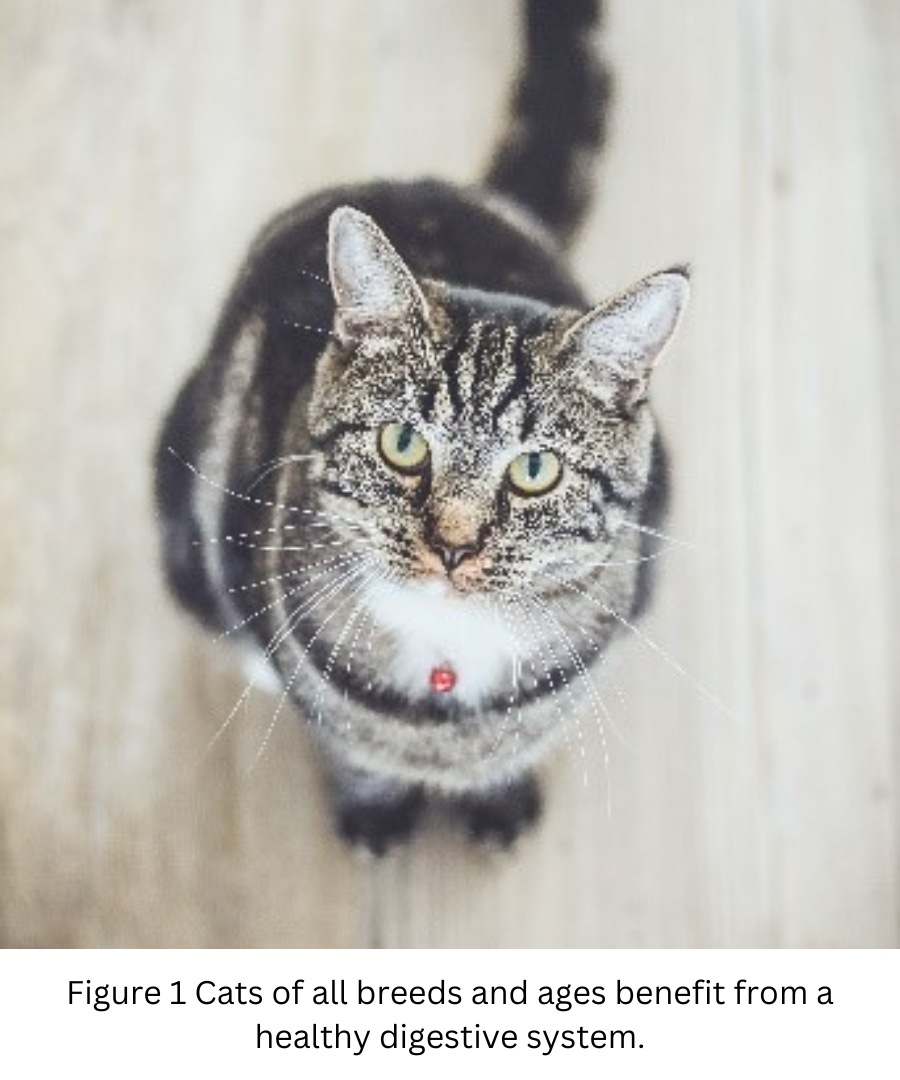 The use of probiotics (pro = good, biotic = alive) for almost all species – including animals and people - have really come on strong in the last several years. We have been waiting a lot of years for science to catch up on what many of us instinctively knew or learned from our grandmothers; that a healthy gut is associated with good health and longevity. Science is still trying to sort it all out, but we have learned more about the microbiome over the last few years than we have ever known before, including how the use of beneficial bacteria through diet and probiotic supplements can help to strengthen the health of all animals.
The use of probiotics (pro = good, biotic = alive) for almost all species – including animals and people - have really come on strong in the last several years. We have been waiting a lot of years for science to catch up on what many of us instinctively knew or learned from our grandmothers; that a healthy gut is associated with good health and longevity. Science is still trying to sort it all out, but we have learned more about the microbiome over the last few years than we have ever known before, including how the use of beneficial bacteria through diet and probiotic supplements can help to strengthen the health of all animals.
What Is a Microbiome?
The microbiome is a complex network of trillions of microbes (tiny living things) that every species on the planet relies on for good health. A balanced microbiome helps cats digest their unique requirements of a meat primary diet and convert it into energy. It also helps to manufacture vitamins and absorb minerals.
Bacteria, fungi, yeasts, protozoa, and viruses are all examples of microbes which co-exist in the microbiome including the canine digestive tract. Collectively, these are known as microbiota, while the corresponding genetic material is referred to as the microbiome.
Balance and diversity is the key. The richer the microbiome is, the more biodiversity it has, and the stronger the health of the animal. The key bacterial phyla in the feline gut are Firmicutes, Bacteroidetes, Actinobacteria, and Proteobacteria.
A microbiome is not just found in the intestines; it is found throughout the body where it helps to restore balance
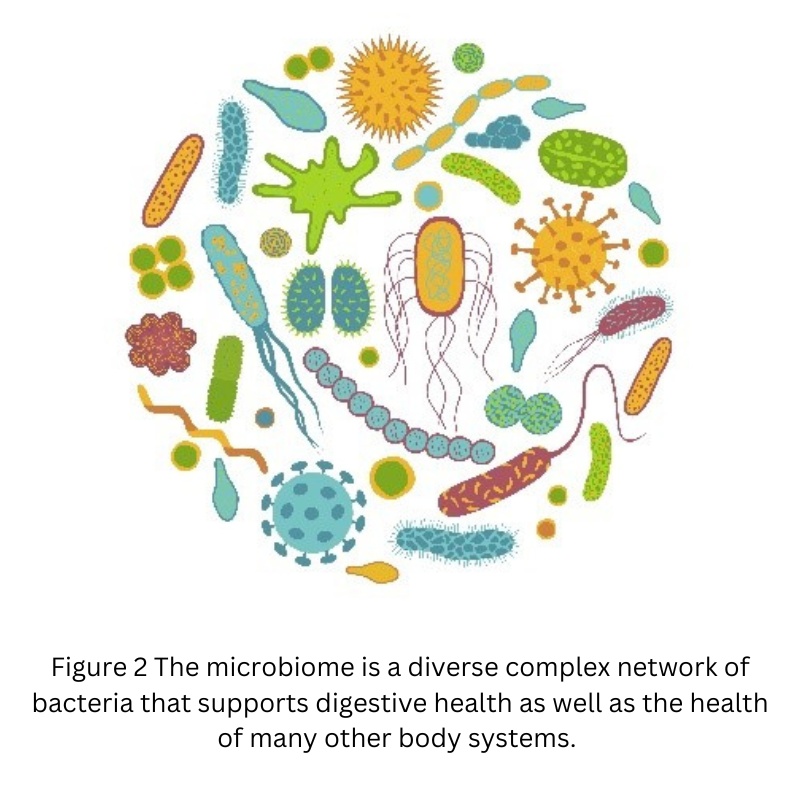 and ensure intracellular communication. In fact, every organ, including the skin, has a localized population of microbes. And each microbiome in each part of the body is distinct from the others. For example, the bacterium in the stomach is different from the cecum, or from the skin. And the bacterial population can even vary from one area of the gut to another. The gut-brain connection is also very important as microbes send signals to the brain affecting the production of neurotransmitters, and therefore emotions and behaviour.
and ensure intracellular communication. In fact, every organ, including the skin, has a localized population of microbes. And each microbiome in each part of the body is distinct from the others. For example, the bacterium in the stomach is different from the cecum, or from the skin. And the bacterial population can even vary from one area of the gut to another. The gut-brain connection is also very important as microbes send signals to the brain affecting the production of neurotransmitters, and therefore emotions and behaviour.
A healthy and diverse microbiome also has a positive influence on nutritional status supporting the production of essential fatty acids, amino acids, B-vitamins, and micronutrients.
Dysbiosis
Disturbances and imbalances in normal gut bacteria that result in disease or dysfunction is known as dysbiosis. Dysbiosis means that there is a decrease in diversity and a higher number of disease-causing pathogens.
Dysbiosis can increase the release of cytokines, which are inflammatory chemicals that can cause mild or severe inflammation throughout the body. Inflammatory cytokines cause skin problems, immune reactions, joint pain, anxiety, and mood changes.
Once the microbiome is damaged the immune system is also affected. In some cats the immune system may recover quite quickly but in those cats with pre-existing health conditions, chronic infections, food allergies, or emotional stress the microbiome and the immune system may take a very long time to recover.
Signs that your cat may have dysbiosis includes gas, bloating, diarrhea, leaky gut, weight loss, loss of appetite, skin problems, dental issues, inflammation, immune diseases, and behavioural issues.
How Does a Cat’s Microbiome Become Unbalanced?
Dysbiosis is usually due to an increase in acid caused by diet, stress, and high numbers of pathogenic bacteria, viruses, yeast, and parasites. Microbes in the gastrointestinal tract are very sensitive to changes in pH and excess acid levels favour disease-causing bacteria which then upset the delicate balance.
Age, lifestyle, environment, stress, commercial food, and medications are seen as the biggest contributors to the health of the microbiome in the domestic cat, and therefore general health.
Domestic Cats and Their Households
Cats and humans share a close relationship and therefore can take on the same or similar health issues. Ailments such as obesity, asthma, diabetes, heart disease and cancer have been linked in the same household. Largely depending on factors such as stress levels, diet and exposure to environmental factors. One study showed cats who were exposed to flame retardants have a higher rate of thyroid disease.
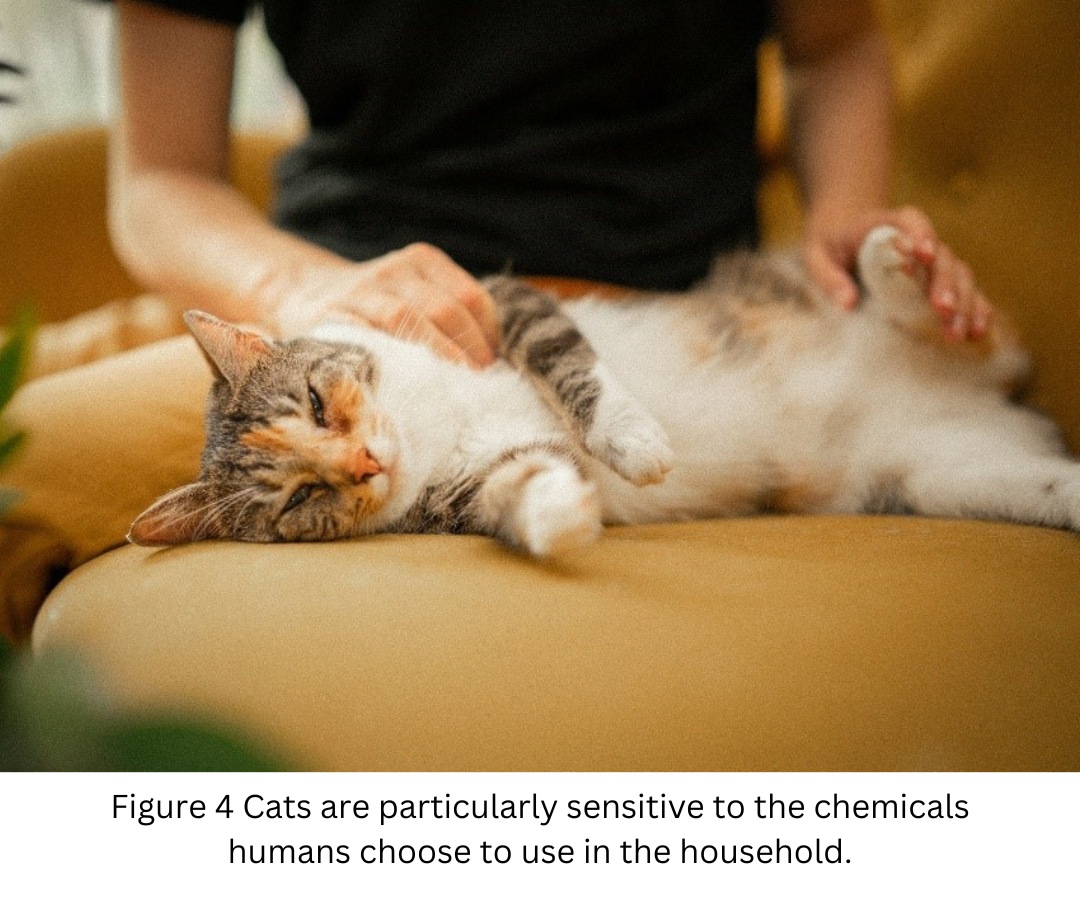
But a healthy microbiome in our cats is also helping us! Cat owners have more diverse and abundant microbial communities than non-cat owners. Studies have shown that cat owners have increased levels of Proteobacteria in their guts. A bacteria that plays a key role in preparing the gut for colonization, helps breakdown complex dietary substances such as proteins, carbs and fibres. Another interesting study points to an association with changes to fifty metabolic pathways, including those involved in the metabolism of amino acids, vitamins and lipids.
Medication
Our cats are treated with the same classes of drugs as humans: antibiotics, steroids, anesthetics, chemical dewormers, antacids, anti-inflammatories and vaccines. But they all contribute to killing off bacteria indiscriminately – friendly or unfriendly - which then promotes the growth of opportunistic pathogenic bacteria, yeast, protozoa, and viruses causing changes to the microbiome and damage to the intestinal immune system. Therefore, it is prudent to include probiotics before, during, and after the use of antibiotics, steroids, vaccines, ulcer medications, chemical dewormers, and most other drugs for that matter.
Dental Care
Digestion starts in the mouth. Cats with periodontal disease or who can’t chew properly have more gas, heat, toxins, and acids in the gut than cats with good dental health.
Stress
A stressed-out cat is a cat on its way to poor health. Their nervous system is highly sensitive and attuned to their environment as part of their survival. Thus, if overlooked and overtaxed it can have a detrimental effect on every single organ and tissue including the intestinal microbiome. Isolation, confinement, lack of movement, loneliness, or difficult home dynamics, including other pets or the people in the house, should all be avoided.
The Benefits of Giving Your Cats Probiotics
Keeping the microbiome as healthy as possible significantly affects the immune system. Over 70% of the immune system is found in the small and large intestines. Known as GALT (gut-associated lymphoid tissue) this amazing system filters and removes mal-digested feed material, debris, waste products, toxins, and chemicals from the body. It produces antibodies and monitors all of the intestinal bacterial populations. For this reason, GALT is critical in fending off most diseases.
Given all the benefits of a healthy microbiome we can see that probiotics have a place in good health care. Benefits include improved intestinal immunity, a reduction of inflammation, and inactivation of toxins. Aside from balancing the microbiome, healthy microbes adhere to the gut wall and block pathogenic bacteria from attaching to the membranes. These actions help all digestive conditions, prevent leaky gut, and help regulate weight.
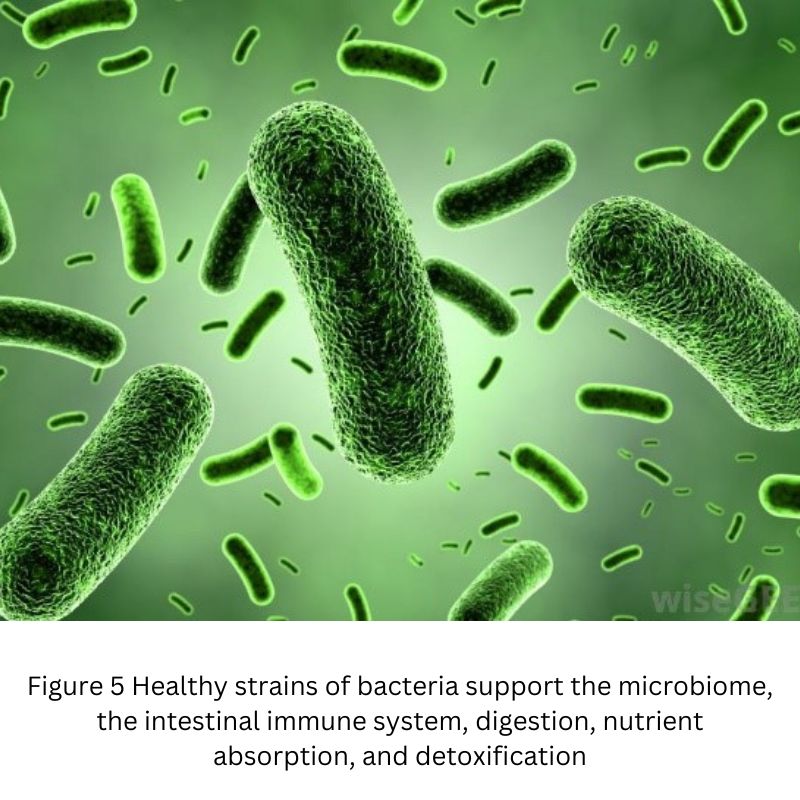
What Kind of Probiotics Should You Give Your Cats?
To maximize potency the probiotic that you purchase should be refrigerated and require refrigeration after purchasing. Probiotics that are stabilized to room temperature have less potency and also lose that potency much quicker than “cold” probiotics. There are very few species that can survive at room temperature and most of them die within thirty days. Probiotic supplements should also be free of binders, fillers, or preservatives. Probiotics, i.e., live bacteria, are measured in colony forming units (CFU) which are living bacteria. Dosages may range from 1 billion to 10 billion CFU depending on the product. Avoid products that contain more than four or five strains of bacteria since certain strains may compete for absorption. Adverse effects of probiotic supplements are rare in both humans and animals.
Do Probiotics Need to be Species Specific?
Acidophilus, Lactobacilli, Bifidobacterium, and Enterococci are common ingredients in probiotic supplements. Many bacteria however are not necessarily indigenous to the feline intestinal tract. And despite the purported benefits of using a species-specific strain, the ability of probiotics to colonize the intestinal tract does not seem to be based on species or host specific bacteria. In fact, some bacterial species taken from the feces of horses were actually more adherent to the digestive tracts of humans and dogs than they were for the horses. Therefore, probiotics should be chosen based on their properties and their potential benefits, not necessarily their origin or their ability to colonize the intestines.
Prebiotics
Prebiotics help the microflora as well. Prebiotics provide soluble and insoluble fibre usually from plant fibre which the healthy gut bacteria can metabolize for food to increase their numbers and the diversity of the microbiome. It is therefore beneficial to feed our cats a variety of different vegetables and some grains. Prebiotics are found in the following foods and herbs:
• Flax seeds
• Chia seeds
• Cooked barley
• Cooked oats
• Marshmallow root
• Slippery Elm
• Leafy greens from the garden or kitchen
Toss in a dose of Riva’s Pro-Colon and your cat’s digestion will be amazing!
How To Restore the Microbiome and Maximize Your Cat’s Health
Change Up the Lifestyle
• Add cooked vegetables to their meals. Pureeing the vegetables to a smooth texture and mixing into their meals is an easy way to increase their intake.
• Keep all medications to an absolute minimum and ask yourself, your cats, and your vet if your pet really needs these medications long-term.
• Reduce stress levels.
• Add digestive herbs as required; herbs are often natural prebiotics which support digestion and help to restore the balance of microbes in the intestines.
Recommended Supplements & Remedies
Pro-Colon: (A proprietary blend of acidophilus, bifido bifidum, and fructo-oligosaccharides (FOS). Keep refrigerated.
> Pre- and probiotics to maintain a healthy microbiome. Supports nutrient absorption, aids leaky gut as well as the intestinal immune system. Contains no fillers or binders.
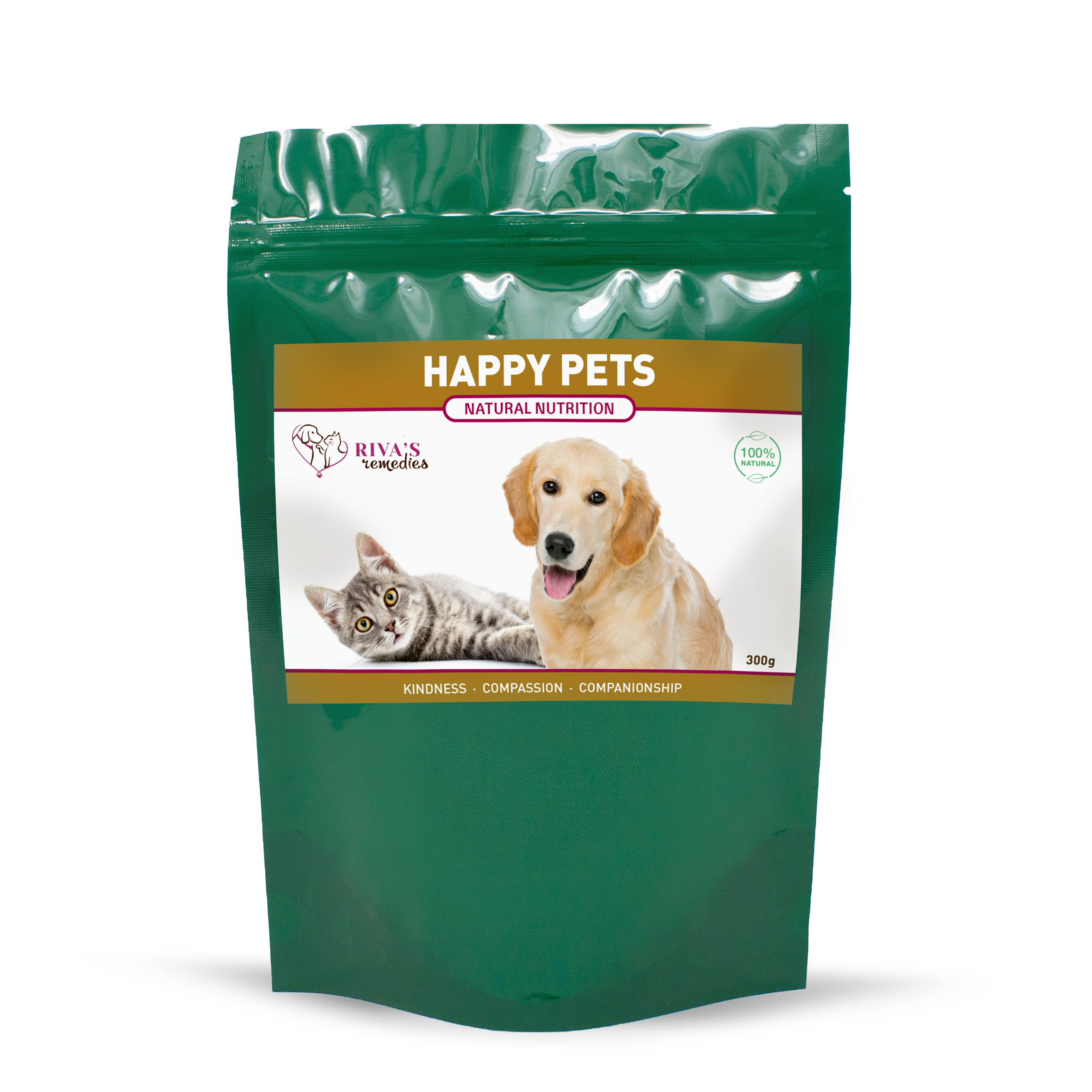 Happy Pets or Happy Pets Senior herbal blend: (A proprietary blend of Blueberry Fibre Powder, Flax Seeds, Herbal Mineral Mix (Kelp, Irish Moss, Dulse), Oatstraw, Rosehips. Senior contains added Sage and Beetroot powder. > Supports the overall unction of digestive system by providing extra fibre.
Happy Pets or Happy Pets Senior herbal blend: (A proprietary blend of Blueberry Fibre Powder, Flax Seeds, Herbal Mineral Mix (Kelp, Irish Moss, Dulse), Oatstraw, Rosehips. Senior contains added Sage and Beetroot powder. > Supports the overall unction of digestive system by providing extra fibre.
> Supports skin, liver, and immunity.
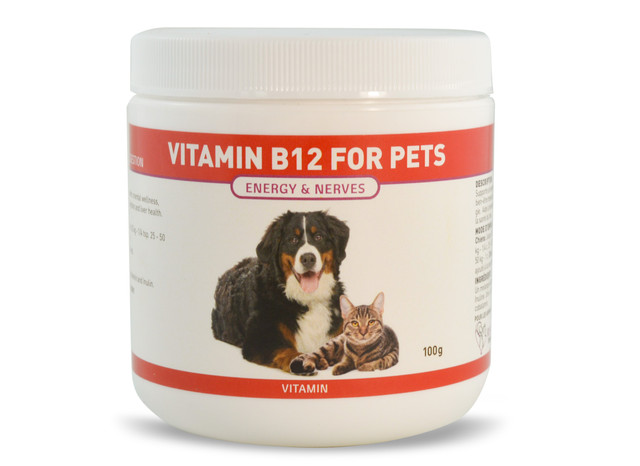 Vitamin B12 (A proprietary blend of Vitamin B12 and Inulin.)
Vitamin B12 (A proprietary blend of Vitamin B12 and Inulin.)
> Maintains healthy colon function. Increases diversity and reduces inflammation in the gut.
It seems that the microbiome is its own universe that has an important job in keeping our cats (and us) healthy. Its contributions are nothing short of amazing. We know that internal hygiene is critical for the prevention of disease and the maintenance of good health and longevity. A naturally varied diet with a quality probiotic supplement goes a long way!
If you would like to optimize your cat's digestive and immune health by identifying inflammatory and reactive foods order a Feline Food Allergy Test. Diet is the single biggest contributor to a healthy microbiome and overall good health.
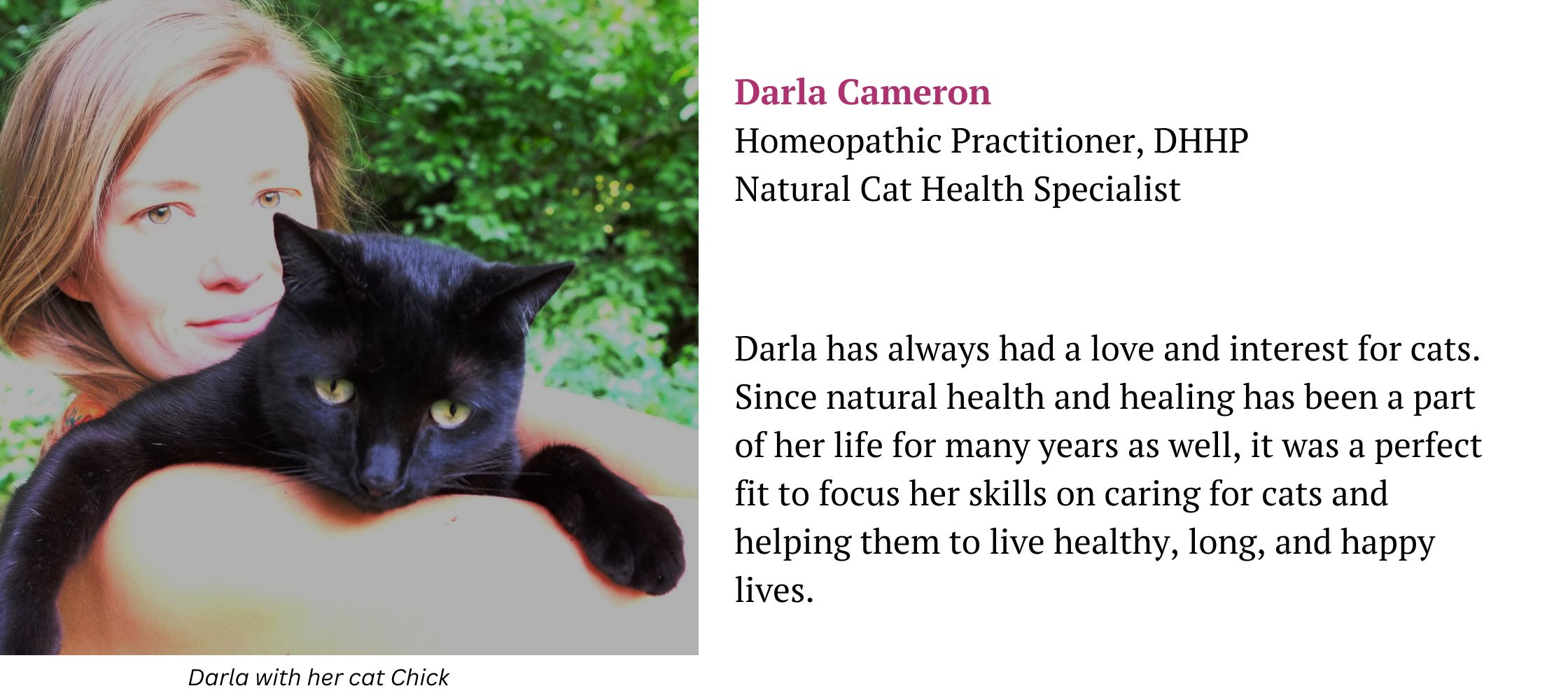
(Co-writer: Marijke van de Water)

